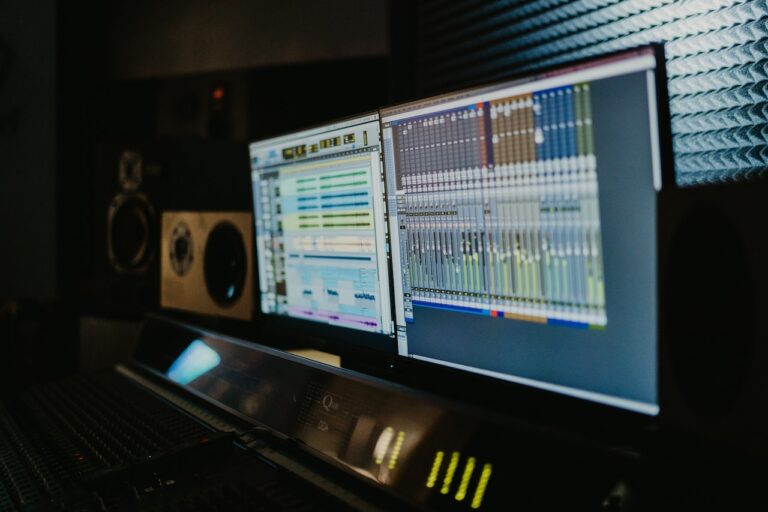Many students feel excited about starting to learn about filmmaking at a college or university. And how can they not be? They have a unique opportunity to let their creativity flow and finally start the journey to become top producers and directors.
Then the reality hits. Before they become the next Spielbergs, Tarantinos, and Kubricks, they need to get more experience and practice filmmaking.
But how can you get the filmmaking experience while you’re still at school? And how can you produce films that tell stories if you don’t have the money for it?
Filmmaking on the budget is difficult but definitely not impossible. And if you are determined to get the filmmaking experience but are struggling financially, here are a few useful tips on how to tell stories through movies but also saving some bucks.
1. Use the Equipment You Already Have
For a beginner in filmmaking, it’s not necessary to have expensive cameras, microphones, and other alternatives to shoot a movie. You can practice all the angles with any equipment you have on hand.
Of course, the quality of the image matters a lot. So, if your phone’s camera has poor resolution, it will be hard to create impressive imagery with it. In this case, you can resort to filmmaking gear rentals, where you can borrow all the equipment. Check if your school offers such services.
However, it’s not necessary to edit your films using expensive software right away. You can begin with free solutions like iMovie, Shotcut, VideoPad, and others. They have all the essential video editing toolkits you need.
Getting content for your videos also doesn’t have to be expensive. Beginning filmmakers usually worry about the music they’ll put in their films. Obviously, you can’t put any song or a tune in your short movie – somebody will claim it, and you can even get into legal trouble. Yet, music is a very important part of telling a story.
Luckily, you can take advantage of royalty free stock music and pick royalty free beats from different collections to match the atmosphere of your film and to emphasize the certain moments of a story to make it unforgettable.
2. Create a Set using Free Locations
It’s true that huge filmmaking studios sometimes spend thousands of dollars on renting locations for movies. But for independent filmmakers, it’s not necessary to pay for any locations. There are many places around your town or city where you can film for free.
So, look around for free permit areas around you, where filming is allowed. You can also ask your school for help with scouting free locations. But while you take advantage of areas free from permits, just start building partnerships with people who own different locations and permit you for filming. You might not need that immediately, but such connections can come in handy later in your career.
3. Recruit Actors from Your College or University
One more thing that might be quite costly is hiring actors for your filmmaking project. Of course, we’re not talking about high-profile actors, however even freelancers aren’t sometimes the best option if you’re on a budget.
So, the simple solution here is to get some drama school actors from your college or university to participate in your project. They will be more than interested in contributing since they want to add experience while building their resume.
You can do the same with scriptwriters. An experienced scriptwriter costs an arm and a leg. If you don’t have the expertise in writing scripts for yourself, you can search for students like you who can help get your ideas organized and build dialogues.
4. Distribute Your Short Films through Free Platforms
Lastly, how can you let the world know about your film?
Of course, the only option is to look for free broadcasting platforms where everyone can access your film. Here are a few options:
YouTube. It’s an obvious choice and evident for most filmmakers – you can upload videos of any length and even monetize them if you get a satisfactory number of subscribers.
Filmhub. This is a platform where all indie filmmakers can upload their movies while not losing the rights and completely for free.
Vimeo. This platform also allows a free subscription and distribution of your films. There’s also an option for monetization.
Apart from obtaining your film on free video distribution platforms, you can also create your own online portfolio or a website to showcase your films or their components. Having a web portfolio is powerful proof of your experience and professionalism as a filmmaker.
That’s a Wrap!
Filmmaking is usually romanticized. Students often see it in glamour – loaded with all the fancy equipment, sets, and actors surrounding them.
However, the reality of becoming a successful filmmaker is quite messy and chaotic. Is it very difficult to tell your story? Absolutely not! If you’re determined enough, you can make a film on a budget using basic equipment, royalty free music, and free locations. You can even work with student actors from your school.
So, don’t let the money problems stop you from telling your story and becoming a successful filmmaker!

